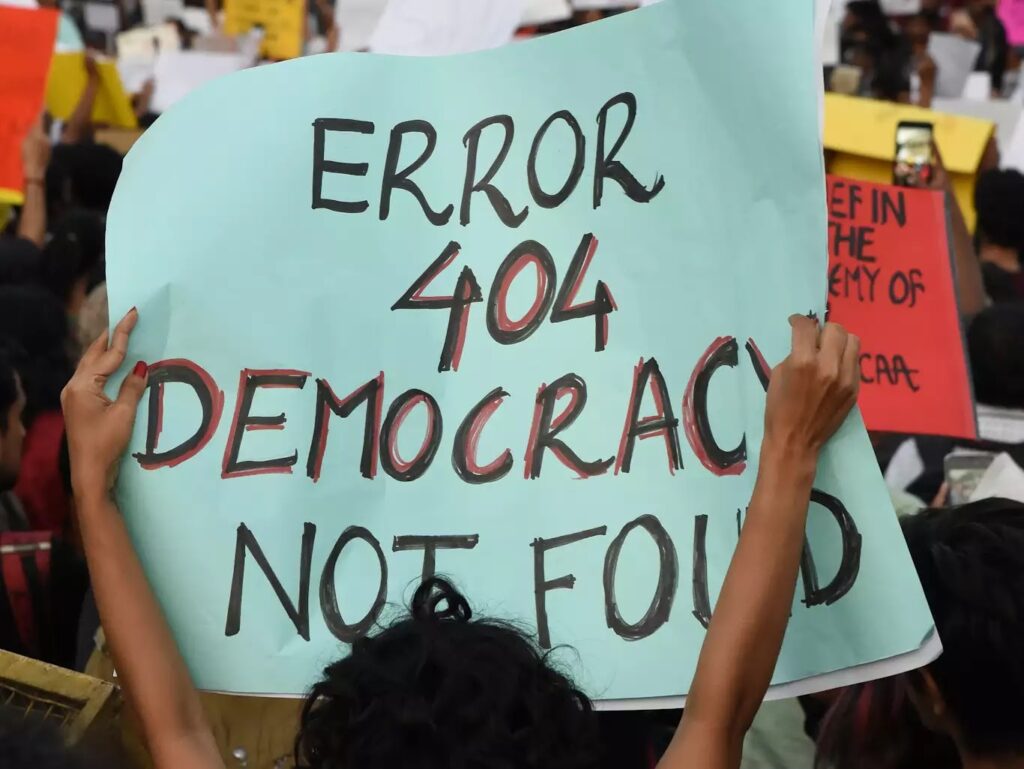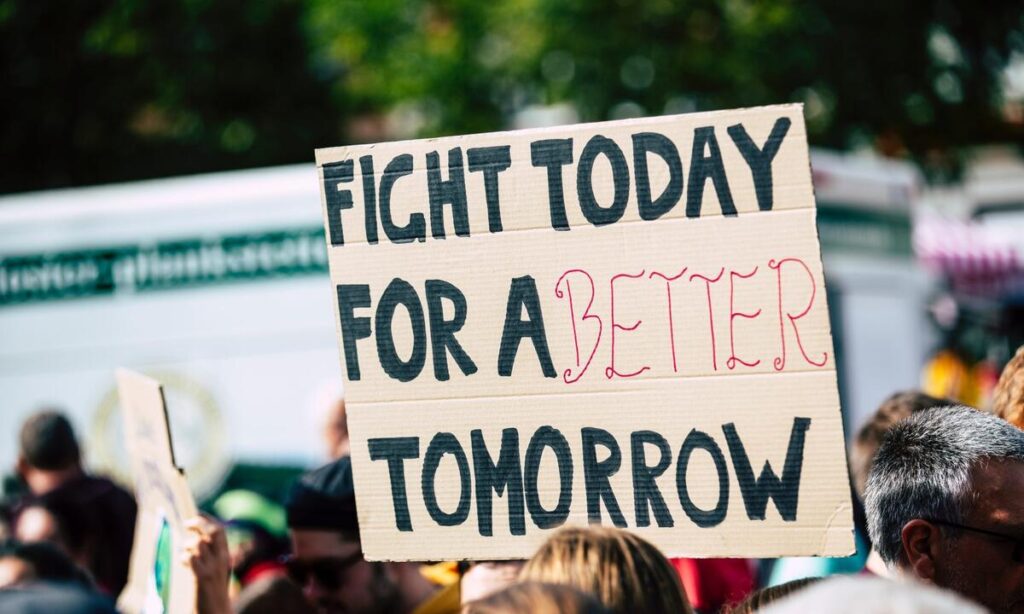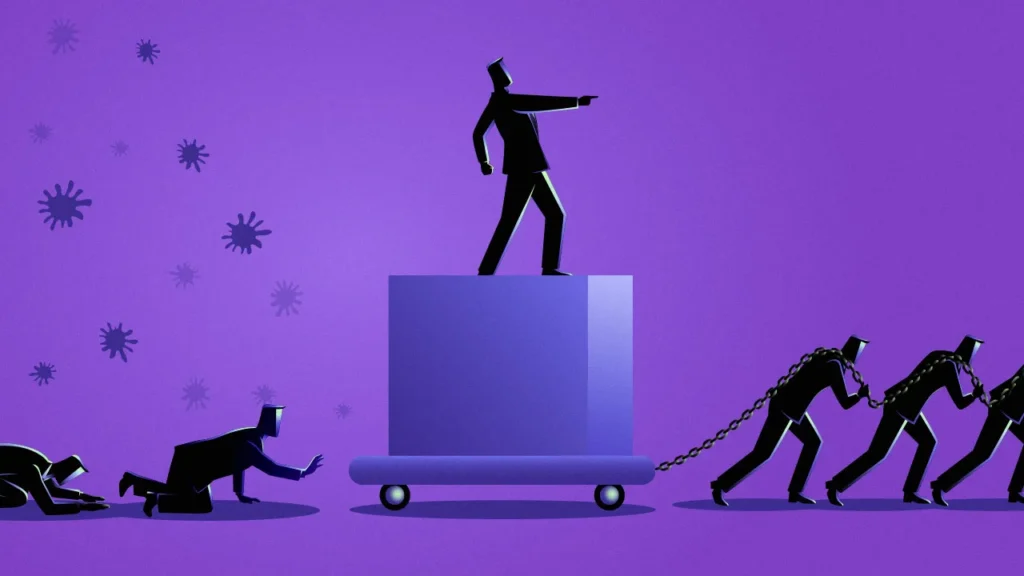Democracy is a political system that empowers citizens to participate in the decision-making process. At the heart of this system lies the fundamental principle that people are the ultimate source of power. However, democracy is not just about voting or electing leaders. It is about ensuring that citizens are empowered to hold their elected officials accountable, and that the administrative bodies and judiciary work together to protect the rights of the people. In this article, we will explore the idea that democracy should only arise when people demand their rights, and how politicians, administrative bodies, and the judiciary must work to protect these rights.

The Role of Citizens in Democracy
Democracy is only meaningful when citizens understand their rights and are willing to fight for them. Citizens must be educated about their fundamental rights, such as the right to vote, the right to free speech, and the right to a fair trial. They must also be empowered to hold their elected officials accountable for their actions. This includes the right to protest peacefully and the right to access information about government decisions.

The Accountability of Politicians and Administrative Bodies
Politicians and administrative bodies must be held accountable to the people they serve. They must be transparent in their decision-making processes and must work to ensure that their policies are in the best interest of the people. Corruption must be eliminated, and elected officials must be held to the highest ethical standards. Additionally, administrative bodies must be efficient, effective, and responsive to the needs of citizens.

The Role of the Judiciary
The judiciary plays a critical role in democracy by protecting the rights of citizens. They must be independent and impartial, and must interpret and enforce the law without bias. The judiciary must work to ensure that everyone is treated equally under the law, and that citizens have access to justice. They must also be willing to hold elected officials accountable when they violate the law or act against the best interests of the people.

The Importance of Dialogue and Debate
Democracy is not just about voting and electing officials. It is also about engaging in dialogue and debate. Citizens must be willing to listen to different perspectives and engage in civil discourse. They must be willing to compromise and find common ground. This is essential for creating a society that is inclusive, tolerant, and respectful of different opinions and beliefs.
The Need for Civic Education
Civic education is critical for democracy to thrive. Citizens must be educated about their rights and responsibilities, as well as the workings of government. This includes understanding how the electoral process works, how laws are made, and how the judiciary functions. Civic education must be provided in schools, but it is also the responsibility of the government and civil society organizations to ensure that citizens have access to this information.

The Dangers of Authoritarianism
Democracy is under threat when authoritarianism takes hold. Authoritarian leaders seek to undermine democratic institutions and restrict the rights of citizens. They often use fear and propaganda to gain power and maintain control. It is essential that citizens remain vigilant and work to protect democracy from these threats.
Conclusion
Democracy is a political system that empowers citizens to participate in the decision-making process. However, it is not just about voting or electing leaders. It is about ensuring that citizens are empowered to hold their elected officials accountable, and that the administrative bodies and judiciary work together to protect the rights of the people. Citizens must be educated about their rights and responsibilities, and must be willing to engage in dialogue and debate. The judiciary must be independent and impartial, and politicians and administrative bodies must be held accountable for their actions. By working together, we can ensure that democracy remains a vital part of our society.
Disclaimer
The views and opinions expressed in this article are solely those of the author and do not necessarily reflect the official policy or position of any agency or organization. The article is intended for informational purposes only and is not intended to provide legal, social, or political advice. The author and publisher of this article do not accept any responsibility for any loss, injury, or damage incurred by the use of or reliance on the information contained in this article. Readers are advised to seek professional legal, social, or political advice before taking any action based on the information contained in this article.

mongoe xyandanxvurulmus.093N9y3NLfS6
Wow, fantastic weblog format! How long have you been running a blog for?
you make blogging look easy. The full look of your web site is excellent,
as neatly as the content! You can see similar here sklep internetowy
Wow, fantastic blog format! How lengthy have you ever been running a blog for?
you made running a blog glance easy. The entire glance of your website is magnificent, as smartly as the content!
You can see similar here najlepszy sklep
great article